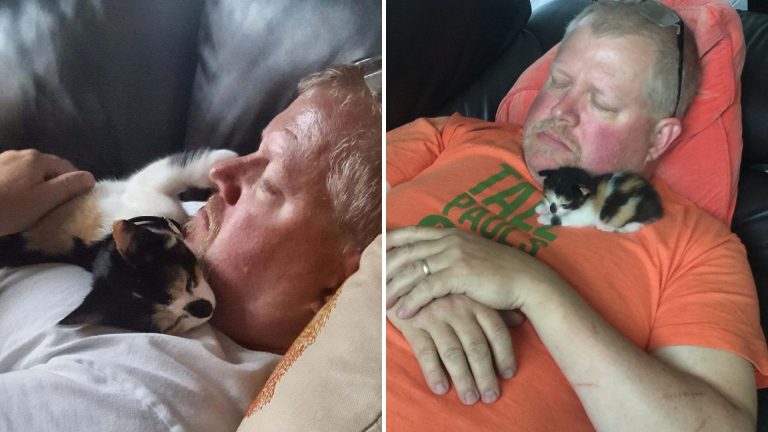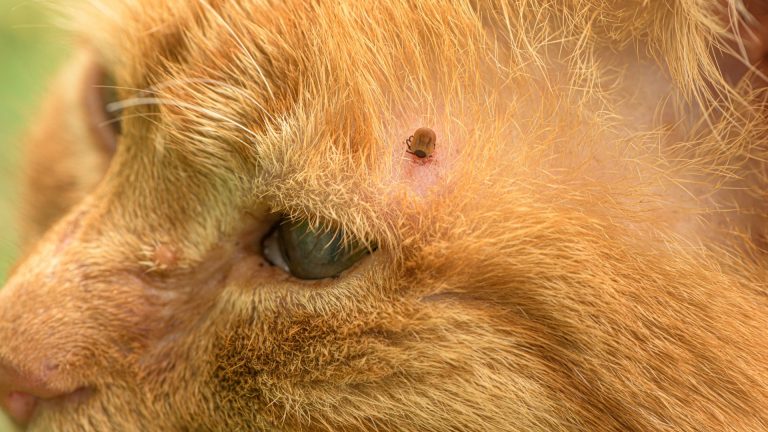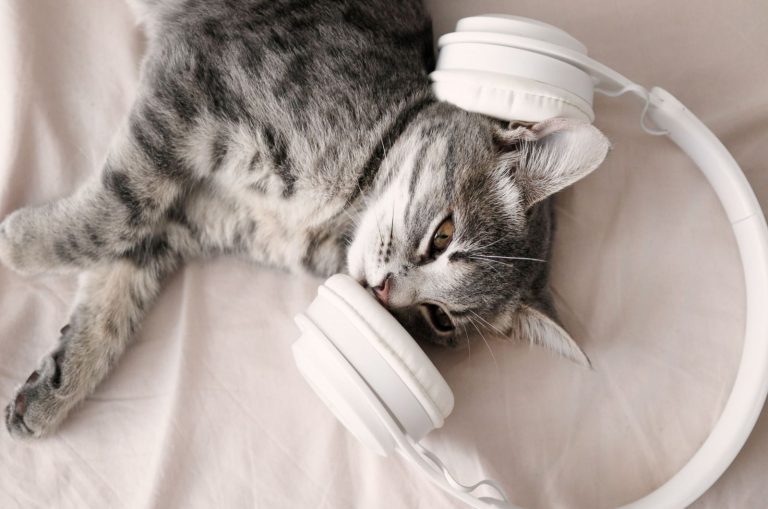Can A Neutered Cat Still Mate? Explained!
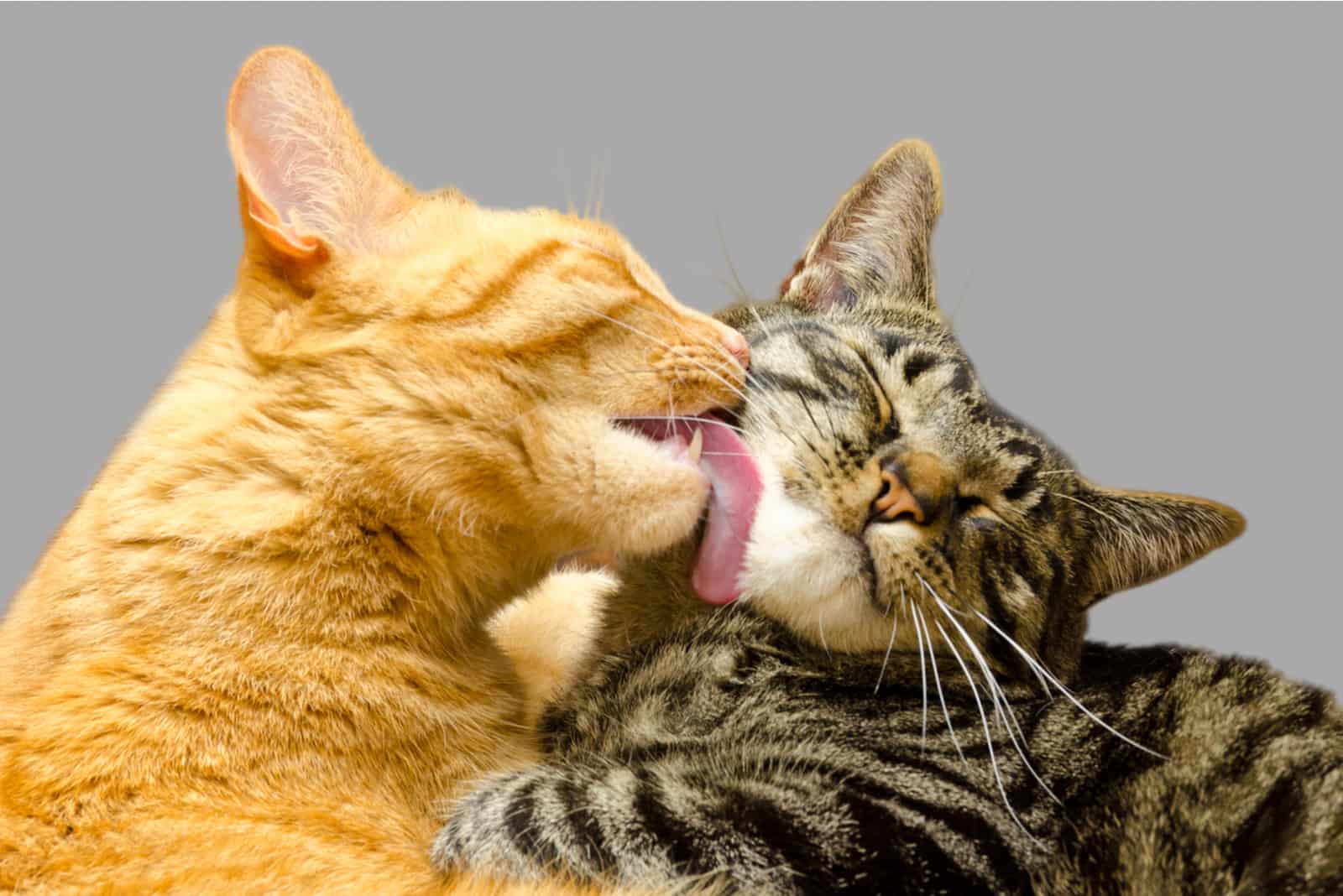
You’ve probably heard a lot about the neutering of male cats and how it is beneficial for both the cat and the owner. This is all true, but one interesting question never seems to pop up in a conversation and that is “Can a neutered cat still mate?”
It is a logical question, so let’s investigate.
The short answer is: Yes, technically, a neutered cat can still mate after its neutering procedure.
However, there is another key question here and that is: “Will a neutered cat still mate after neutering?”
The answer to this is not a simple one.
A neutered cat will, for a while after the procedure, still have the urge to mate. As time passes, the cat will have absolutely no interest in mating.
Keep on reading to find out why male cats still have the urge to mate after the procedure, even though their testicles are completely removed!
Can A Neutered Cat Still Mate?
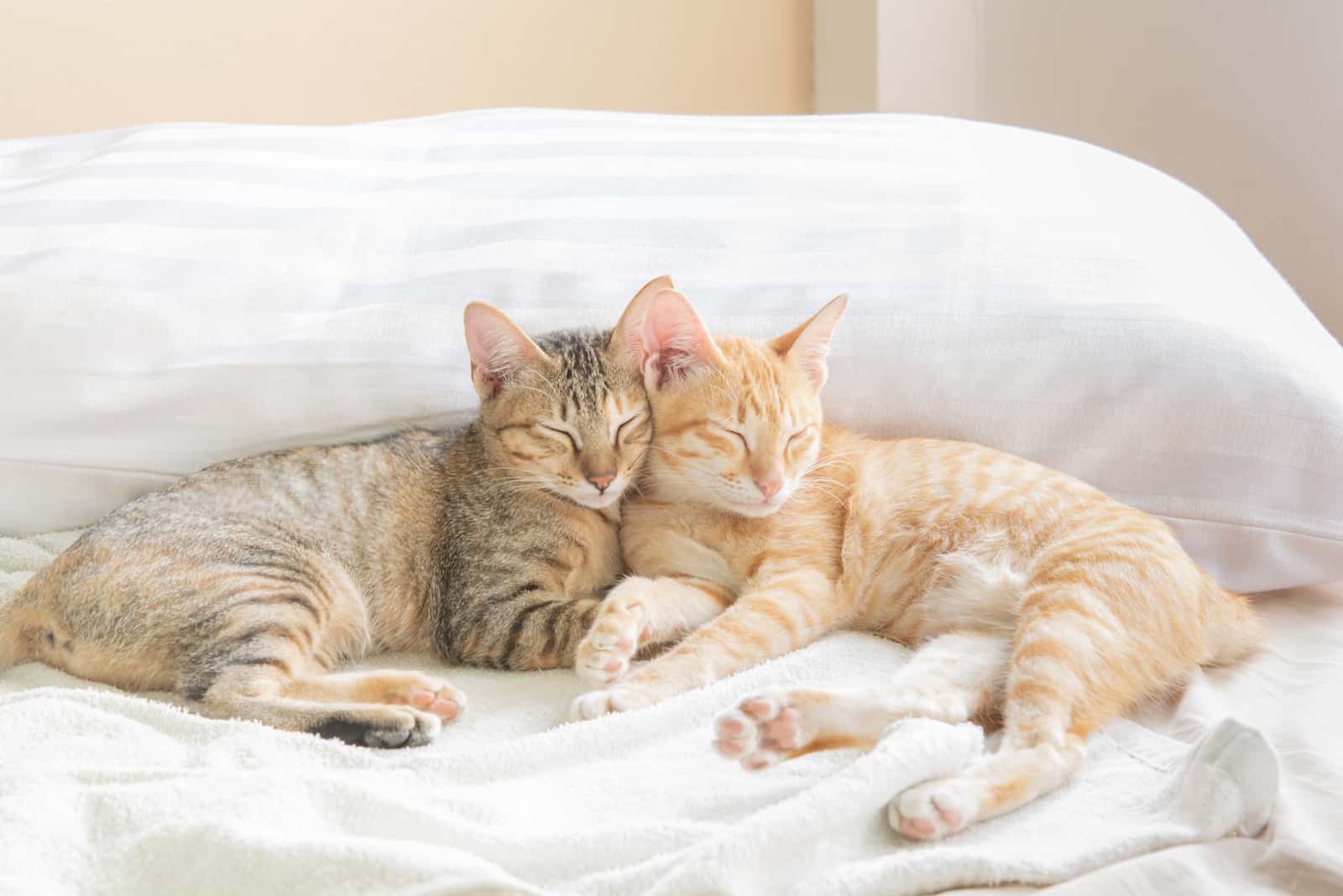
As I already mentioned, a neutered cat can still (technically) mate after its testicles have been removed.
How so? Why is “technically” emphasized?
In order to answer this question, let’s jump into the world of biology!
One Particular Hormone Is To Blame!
That hormone is testosterone of course!
This is the main “male hormone” and it is produced by the testicles. Testosterone has many functions in the body, but the role we are interested in now is mating.
Testosterone drives the mating instinct in male cats. It has the same role in human males too!
There is one thing particularly interesting about testosterone (and all hormones in general) – they will not simply disappear just because the source disappears!
A testosterone molecule essentially says “Yes, you have removed the structure that produced me, so what? I am staying here for a bit longer, thank you!”
It turns out, testosterone does not completely leave a cat’s body for 6-7 weeks!
Even though the testicles that produce the testosterone are gone, testosterone that has already been secreted stays and circulates around the body! Of course, as time passes, the amount of testosterone drops and the last of it will be gone by around the 7th week.
Why Does This Even Matter?
Testosterone drives mating in male cats. The higher the level of testosterone, the higher the mating drive will be.
Besides this, other hormone-related behaviors (such as urine spraying, aggression, humping, and roaming) will also be more prominent as testosterone levels rise!
As testosterone levels drop, the mating drive will decrease along with other hormone-related behaviors.
Can A Neutered Cat Still Mate? VS Will A Neutered Cat Still Mate?
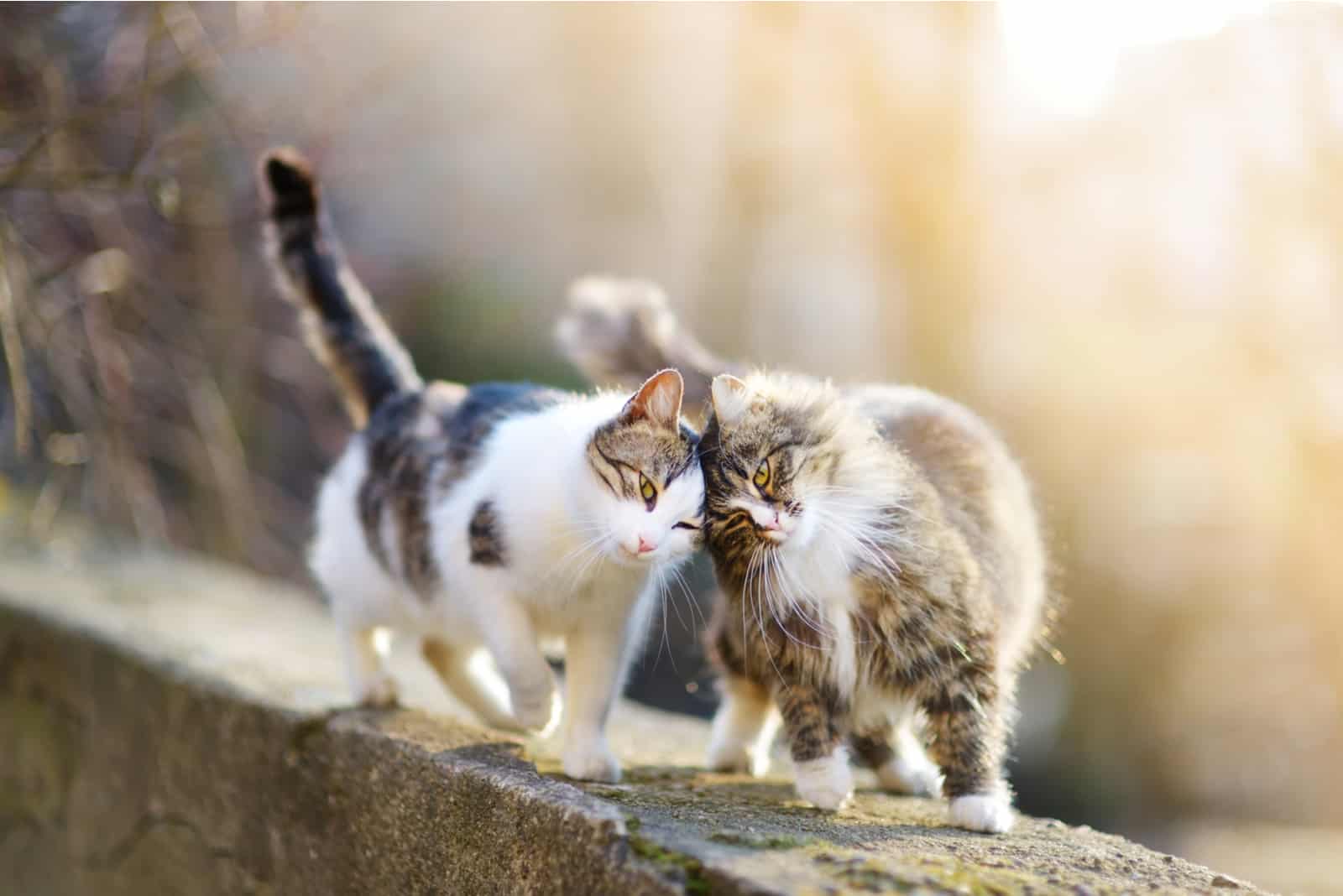
A neutered cat still has the ability to mate considering everything else (besides the testicles) is still present and functioning.
Testosterone does not render the male cat incapable of copulation, it just removes the drive for it.
Naturally, the role of testicles cannot be forgotten and in the next section, we will look at how testosterone influences a male cat’s urge for mating.
So, Will A Neutered Cat Still Mate?
Here, we have two cases:
1. If Your Cat Has Just Been Neutered
Yes, your cat will still mate.
Why?
Well, there is still testosterone in the cat’s body!
Testosterone is responsible for the mating drive so while it is still present, your cat will still have the urge to mate.
As mentioned above, this behavior will slowly diminish as testosterone levels slowly drop in the bloodstream.
2. If Your Cat Has Been Neutered For A While
It takes up to 6 weeks for all the testosterone to disappear. After that, a male cat will have little to no urge to mate.
Of course, every rule has its exceptions. Some cats still have the urge to mate even after neutering, but this is not very common!
In general, a neutered cat should have little to no urge to mate, since there is no testosterone driving this urge.
The Process Of Neutering Explained!
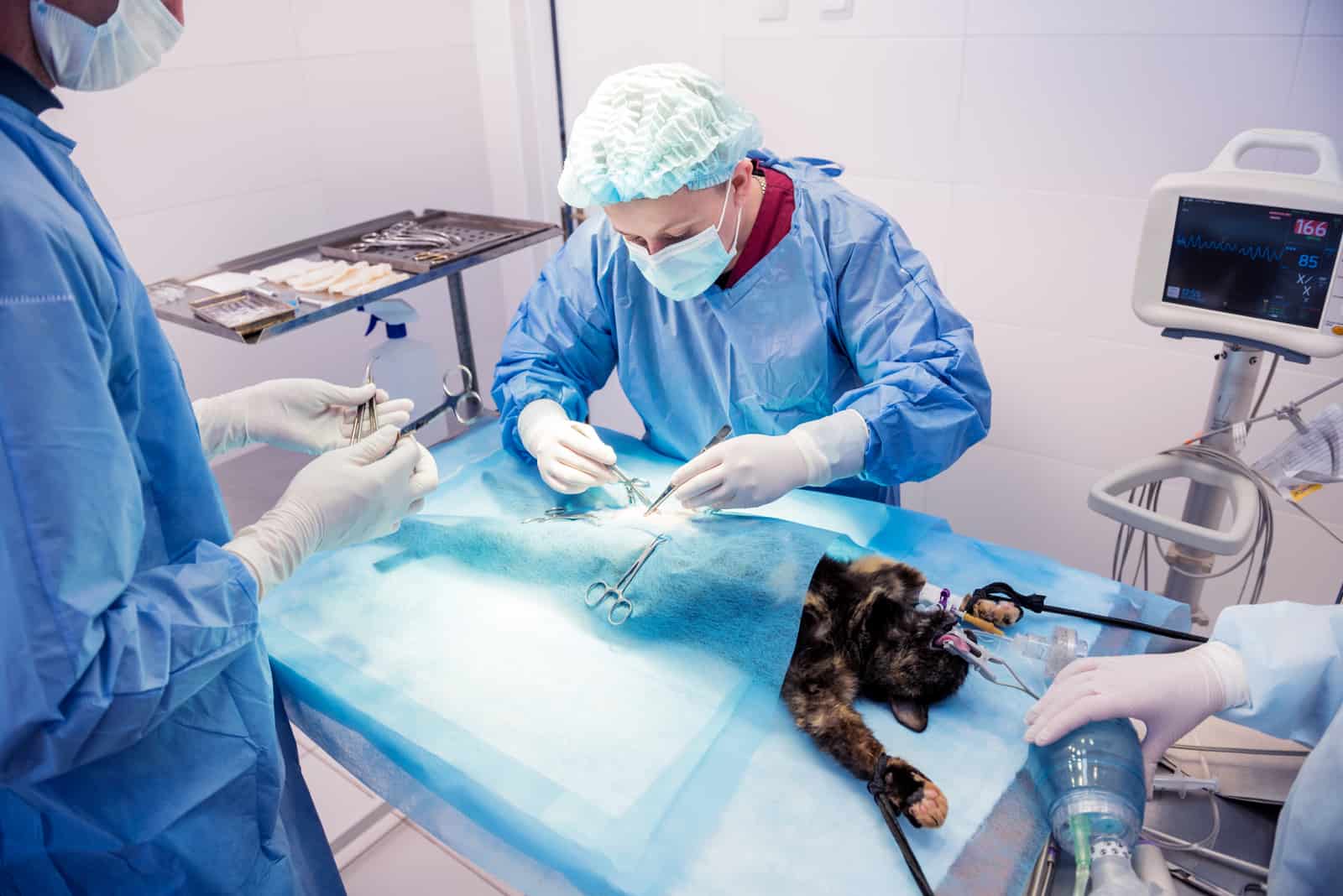
Neutering is a process of surgically removing a male cat’s reproductive organs – the testicles. The neuter surgery is also called an orchidectomy.
This operation should be carried out before the cat turns 5 months of age. The effects of neutering older cats are not as visible as for young cats, so it is recommended to do it early!
This is a short procedure that is performed under general anesthetic by a veterinary doctor. Pain relief is given to the cat before the surgery, so that the effects kick-in after the surgery.
Male cats do not have any stitches (sutures) from the procedure because it is done through the scrotum.
The process of healing is fast and your pet should recover quickly and easily!
8 Questions That Might Have Crossed Your Mind!
Now we have covered the basics of the mating urge and how neutering influences it, let’s go over some other questions you might be wondering about!
1. Do Neutered Male Cats Still Reproduce (aka Make Kittens)?
Right After Neutering
For some time after neutering, it is possible for neutered cats to get unspayed female cats pregnant.
This is because the sperm that has already been produced is still active for a few weeks. During this time, keep your male cat away from unspayed female cats (spayed female cats are not a problem since they cannot have kittens).
A Couple Of Weeks After Neutering
After a few weeks, when all the sperm cells have died, a neutered male cat cannot reproduce any more.
Let’s just make a quick distinction between mating and reproducing. Mating means sexual intercourse, while reproducing means producing offspring by the act of sexual intercourse.
A neutered cat cannot reproduce because it has lost the ability to produce sperm cells. Sperm cells are made by the testicles. By neutering, the testicles are removed, so a neutered cat cannot make kittens, but it still can have intercourse.
2. Can A Neutered Cat Still Get Erect?
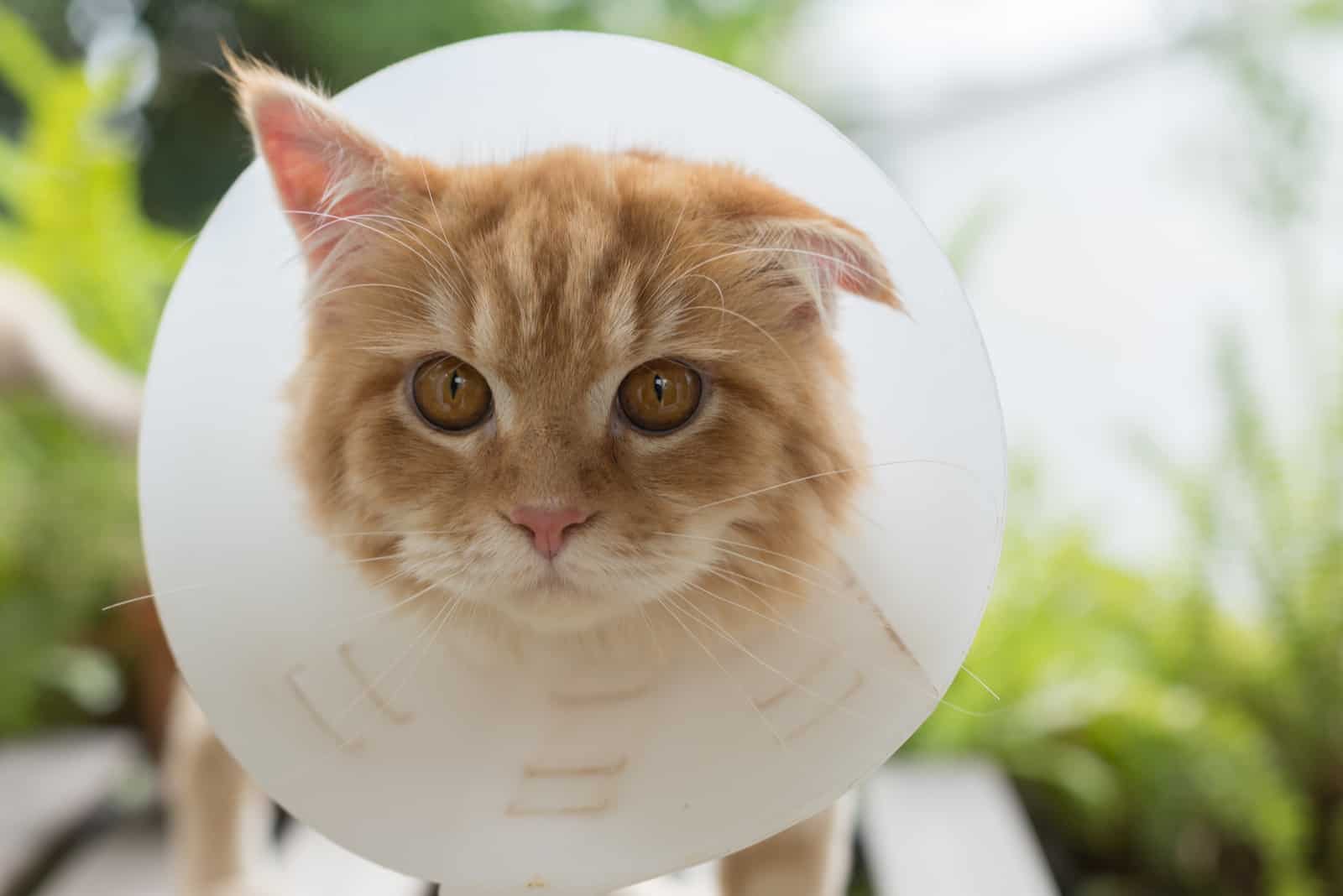
Yes!
This probably is not the answer you were expecting. The reason for it is simple – testosterone is not the only trigger for an erection.
Erection is a complex process that does not necessarily need testosterone in order to occur. Of course, this hormone facilitates erection, but it’s not the only factor.
The absence of testosterone just makes erections less likely to occur, but they still can and do happen.
So, don’t be surprised if you see your neutered male cat with an erection; it is a normal thing. This does not mean the neutering procedure was unsuccessful!
3. Can A Neutered Cat Ejaculate?
Yes, a neutered cat can still ejaculate. This also might come as a surprise, but it is true.
In the castration process, the prostate is not removed. The prostate is an organ that produces the fluid (the semen) that protects the sperm. Sperm cells will not be produced anymore because the testicles have been removed, but the fluid that makes up the ejaculate will still be produced by the prostate.
Your cat will not ejaculate often (or maybe at all), because the sexual urge is significantly reduced by the removal of the testicles.
If your cat does ejaculate, the substance will only contain semen (the fluid) and not sperm cells.
So yes, cats can ejaculate and it is completely normal to observe this, although it is not very common!
4. Do Neutered Cats Still Have The Urge To Mate?
The removal of testicles means testosterone levels will slowly start to diminish.
At first, male cats will still have the urge to mate so do not be surprised if your cat behaves the same as before the procedure.
After a couple of weeks, your cat will have a significantly lower mating drive.
After some time, you are likely to observe that your cat has no mating drive at all.
On the other hand, some cats never completely lose the urge to mate. They just have the urge reduced to a low level.
5. Why Does My Neutered Cat Still Try To Mate?

You’ve recently castrated your cat and now you might be wondering “Why is my neutered cat still trying to mate – this behavior should have stopped?!”
I am guessing you’ve had the neutering procedure done recently (no longer than 6 weeks ago).
If that is the case, the answer is: your cat still has testosterone circulating in his bloodstream. Testosterone is a key player in stimulating sexual urges.
If your cat had the procedure done more than 6 weeks ago and it is still displaying an urge to mate, then your cat probably has a diminished urge to mate.
This is completely normal and not as uncommon as you might think!
6. Does Neutering A Cat Change Their Sexual Behavior?
Cat’s sexual behaviors are displayed by:
• mounting behavior
• cat humping
• sexual aggression
• hip thrusts
• biting the neck of a female cat
• sexual intercourse
These are all unwanted behaviors that are hormone-driven.
As we now know, neutering changes these sexual behaviors by simply reducing the urge to do them!
It does not make this desire completely go away.
You will probably notice that your male cat simply loses interest in these acts, even though they may still be sometimes observed.
7. Will Neutering A Cat Make It Fat?
This is a common question that comes up when discussing cat sterilization. It seems to be a popular misconception that cats are immediately going to get fat after neutering or spaying.
This can be the case, but not necessarily.
Neutering can make your cat a bit fat, but this is not a fact for every cat!
I will explain this a bit below, so keep on reading!
8. Can A Spayed Cat Mate?

Spaying is the process of surgically sterilizing a female cat. It should be carried out before the cat is 5 months old because this is the age they reach sexual maturity and can reproduce.
During the procedure (known as ovariohysterectomy), the cat’s reproductive organs are completely removed. This includes the ovaries (they produce the sex hormones), the fallopian tubes, and the uterus (the womb).
This procedure also completely removes the occurrence of the heat cycle and all the signs of it including restlessness, loud meows and yowling etc.
But does it remove the cat’s ability to mate?
It does not completely remove the ability to mate but, again, it just makes the urge to mate very low to non-existent.
The Pros And Cons Of Neutering!
The process of sterilizing your cat has its pros and cons. Let’s take a look at 5 benefits and 2 drawbacks of the neutering process.
5 Benefits Of Neutering Your Cat!

1. Reduce Cat Overpopulation
Cat overpopulation is a huge issue that many countries face. More kittens and cats enter animal shelters compared to the number that are adopted. Not to mention the number of cats that don’t even get to the shelter and are left alone on the streets.
If you think finding a home for a kitten is an easy task, try doing it and you’ll see how difficult it can be!
Female cats can have multiple litters of kittens per year and one litter has, on average, 6 kittens. That is a pretty large number of kittens that a female cat can produce in just a year. Not to mention the ast that those kittens will be able to reproduce from 5 months old. This is all due to the action of tomcats (unneutered male cats)!
Considering the amount of kittens already present – there is really no need for any more kittens (no matter how adorable they are), so go ahead and neuter your cat.
2. A Calmer Cat
Cats are a very territorial species. This is true for both males and females.
However, intact male cats express a much higher level of territorial behavior, so they are more aggressive than female and neutered cats.
Intact males often get into fights with other cats, which is potentially dangerous as serious wounds can be sustained.
This aggression is hormone-related, meaning it is influenced by testosterone levels.
After neutering, testosterone levels drop when the testosterone-producing testicles are removed. This means that after neutering, the cat will be calmer than before. There should be far fewer fights with other males!
Both male and female cats will not be involved in partner-seeking behaviors after sterilization, so the absence of those characteristic pre-mating behaviors will also make your cat calmer.
3. Fewer Health Issues
Neutered cats have fewer health issues compared to their unneutered friends. Without their reproductive organs, they cannot develop any diseases related to the reproductive organs.
For male cats, those would be:
• testicular cancer
• prostate disorders
The occurrence of reproductive tract diseases in male cats is also pretty low.
For female cats, that is not the case.They have a wider range of diseases related to the reproductive tract and they are not such a rare occurrence.
For health reasons, sterilization is a good option for both male and female cats (but especially for female cats)!
4. Weakened Smell Of The Urine
Many cat owners recognize the smell of the urine of intact male cats. In general, cat urine has a strong smell.
You probably noticed cats drink way less water than dogs. As a result, their urine is much more concentrated and therefore, much smellier. Changing the litter in the litter box does not always solve this issue!
The strong ammonia scent of urine is much more prominent in intact male cats.
Why Is This The Case?
The answer lies in the pheromones, especially a pheromone called felinine. The amount of this chemical in the male cat’s urine is dependent on his testosterone levels.
A high level of testosterone means a high level of felinine in the urine. It can be concluded that non neutered male cats have a higher concentration of felinine in the urine, resulting in a much stronger urine odor.
Neutered cats do not have a high level of testosterone, so their urine does not reek like an unneutered cat’s urine does!
Female cats and neutered male cats lack high levels of felinine, meaning their pee does not stink as much as an intact male cat’s pee does.
5. No More Roaming
Roaming is something both male and female cats do in order to find a mating partner in the breeding season.
A male cat can smell a female cat in heat even from a mile away!
This means male cats will go over long distances in order to mate. This puts them in potentially dangerous situations, especially considering the unfortunate lack of attention that many drivers pay to cats.
Also, neutering reduces the stress for indoor cat owners that do not know where their pet is and if they’re okay when they’re wandering around the streets.
The Disadvantages Of Neutering!

Everything has its pros and cons, and so does sterilizing your cat. The cons are outweighed by the pros a great deal, but they still need to be mentioned.
1. Weight Gain
Not all cats will gain weight after sterilization, but some of them do. The reason behind this has nothing to do with hormones, as you might expect.
The reason is much more simple. Your cat is no longer participating in premating rituals nor actively looking for a partner. These two activities burn quite a few calories.
On the other hand, your cat might still be eating the same amount of food as before sterilization. This means your cat will be consuming more calories than it is burning, resulting in a small weight gain.
2. Losing The Ability To Reproduce Ever Again
If you decide to go ahead with the castration of your cat, you can say goodbye to the chance of them having kittens.
Neutering (otherwise known as castration) is an irreversible procedure, as is spaying in female cats!
Keep this in mind when you’re thinking about sterilizing your pet. If you want to breed them, then do not spay or neuter your cat.
Do Castrated Cats Live Longer?
There are two reasons why sterilized cats live longer:
1. No occurrence of diseases related to the reproductive tract
Removal of the reproductive organs makes it impossible for diseases of the reproductive tract to occur. This lowers the number of possible diseases your cat might have, which is a good thing.
2. Castrated cats to not roam around looking for a mating partner
Both male and female cats are prone to running away from home during the breeding season. They can spend days away from home simply wandering around looking for partners. This can put them in danger of being hit by vehicles in the streets.
We all know this to be a very possible scenario, unfortunately. This is one of the reasons why sterilization is good for cats – it prevents them from being injured or killed by cars. This is because sterilization removes their instincts to mate so they do not run away from home to seek out partners.
In Conclusion
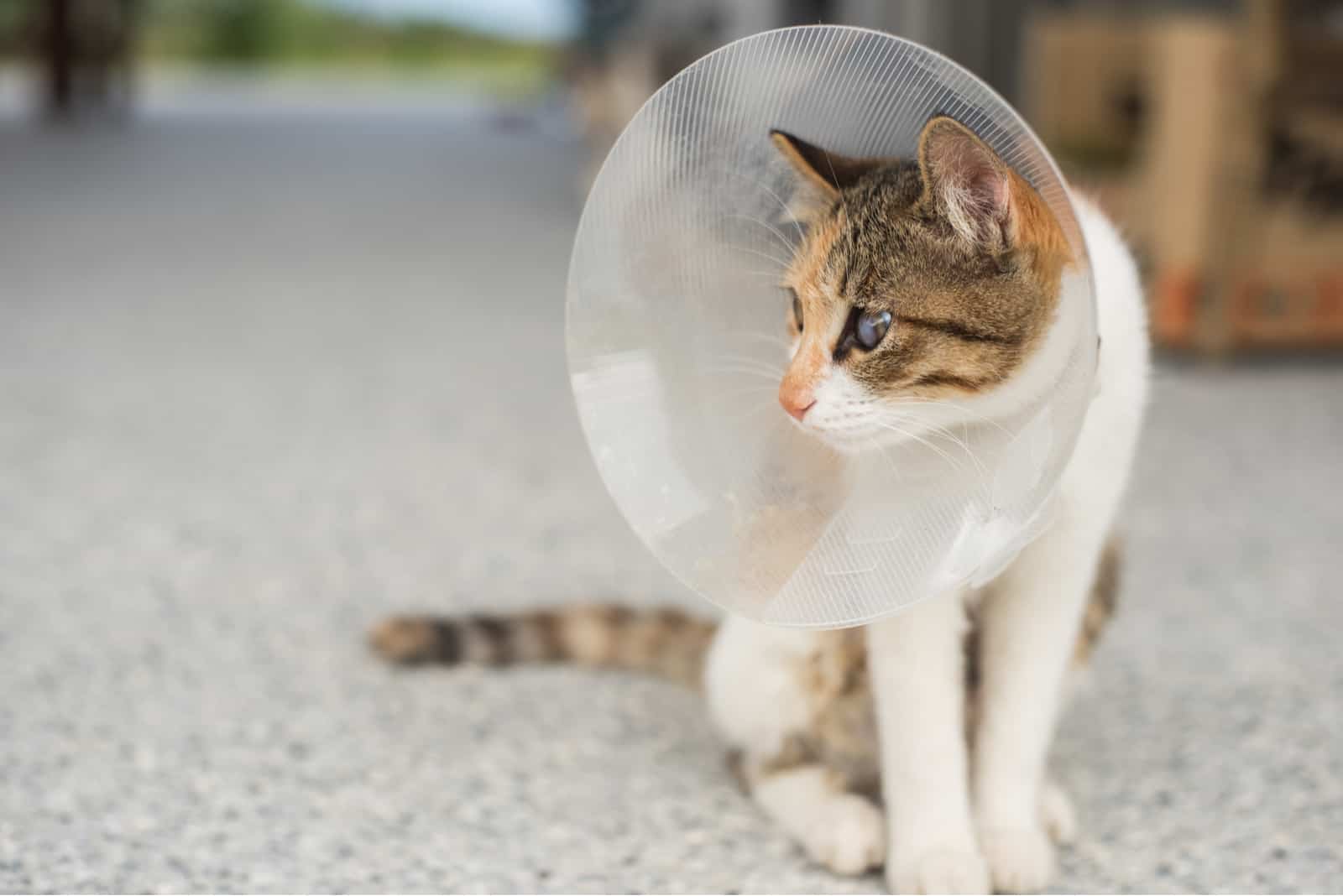
Hopefully you now have a clear and understandable answer to the question “Can a neutered cat still mate?”, but let’s sum it all up!
Neutering your cat does not remove the cat’s ability to have sexual intercourse (to mate), it simply lowers the sexual desire!
This is because mating is driven by testosterone, which stops being produced after testosterone-producing structures (the testicles) are removed.
However, this procedure does remove the ability of your cat to reproduce, as the testicles produce the necessary sperm cells.
It also makes hormone-driven cat behaviors diminish, which is a relief for most cat owners! Urine marking, foul-smelling urine, constantly humping and mounting, getting into fights with other cats, and running away to look for partners are not fun things for pet owners to have to deal with!
These behaviors may continue, but they will not be as prominent as before castration.
Also, neutering your cat has other benefits such as removing the possibility of producing any more kittens (the world has a lot of them already), making your cat calmer and leaving them with fewer potential health issues.
I highly suggest you get your cat neutered as soon as possible, considering the benefits this procedure brings to your cat and you!


